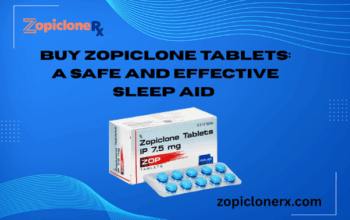Therapeutic coaching has evolved significantly in recent years, integrating innovative approaches to address mental health challenges and holistic well-being. This article delves into two progressive techniques gaining prominence: trauma-informed coaching and Electro-Acupuncture Medicine (EAM). These methods are reshaping how coaches and practitioners approach client care, offering effective solutions rooted in both traditional wisdom and cutting-edge technology.
Trauma-Informed Coaching
Trauma-informed coaching represents a profound shift from traditional coaching methodologies. It acknowledges the pervasive impact of trauma on an individual’s mental and emotional health, emphasizing safety, trustworthiness, and empowerment in the coaching relationship. Unlike conventional coaching, which often focuses solely on goals and outcomes, trauma informed coaching prioritizes understanding and healing underlying trauma as a pathway to personal growth.
In this approach, coaches are trained to recognize the signs and symptoms of trauma, creating a supportive environment where clients feel validated and understood. Techniques such as mindfulness, narrative therapy, and somatic experiencing are integrated to help clients process and integrate their traumatic experiences. By fostering a sense of safety and empowerment, trauma-informed coaching facilitates healing and resilience, empowering clients to reclaim their lives with renewed confidence and purpose.
Electro-Acupuncture Medicine
Electro-Acupuncture Medicine (EAM) merges the principles of traditional Chinese medicine with modern technology to address a wide range of physical and emotional ailments. Unlike traditional acupuncture, which uses needles to stimulate acupuncture points, EAM incorporates mild electrical stimulation to enhance therapeutic outcomes.
The application of low-frequency electrical currents through acupuncture needles or pads targets specific points along the body’s meridians, promoting the flow of Qi (vital energy) and restoring balance to the body’s energy systems. This approach is particularly effective in treating chronic pain, stress-related disorders, and emotional imbalances.
EAM’s integration into therapeutic coaching expands the toolkit available to practitioners, offering clients a holistic approach to healing that combines ancient wisdom with evidence-based technology. By harmonizing the body’s energy systems, EAM supports emotional resilience and overall well-being, complementing the psychological insights gained through coaching sessions.
The Synergy of Modern Techniques in Therapeutic Coaching
The synergy between trauma-informed coaching and Electro-Acupuncture Medicine exemplifies the evolution of therapeutic practices towards comprehensive and integrative care. By combining psychological support with physiological balance, practitioners can address the interconnected nature of mental and physical health, promoting holistic wellness.
In practice, trauma-informed coaching provides clients with the emotional foundation and resilience needed to navigate life’s challenges effectively. Concurrently, EAM offers physiological support, alleviating symptoms of stress and trauma stored within the body. Together, these approaches empower individuals to achieve profound healing and personal growth.
Conclusion
The integration of trauma-informed coaching and Electro-Acupuncture Medicine exemplifies a holistic approach to therapeutic coaching, addressing the interconnected dimensions of mental, emotional, and physical health. By combining psychological insights with physiological balance, practitioners empower clients to achieve profound healing and personal transformation.
As therapeutic coaching continues to evolve, embracing innovation and evidence-based practices, the future holds promising opportunities for advancing client care and promoting holistic well-being. By staying at the forefront of these developments, practitioners can effectively meet the diverse needs of their clients, fostering resilience, empowerment, and lasting change.




